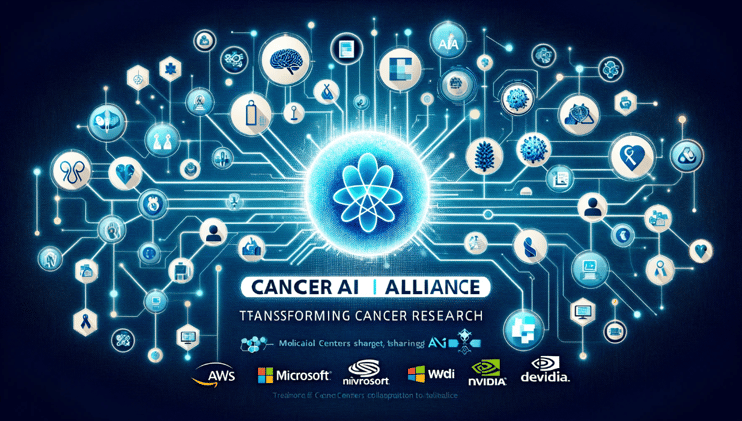Overview of the Cancer AI Alliance (CAIA)
Four leading National Cancer Institute-designated cancer centers — Dana-Farber Cancer Institute, Fred Hutch Cancer Center, Memorial Sloan Kettering Cancer Center, and The Sidney Kimmel Comprehensive Cancer Center at Johns Hopkins — have come together to form the Cancer AI Alliance (CAIA). Supported by initial funding from AI leaders AWS, Deloitte, Microsoft, and NVIDIA, the alliance aims to harness the collective power of cancer data and applied AI to unlock breakthrough discoveries in cancer research and care.
Mission and Goals of the Alliance
CAIA will leverage AI to analyze the extensive data held by participating cancer centers, helping to solve critical technical challenges in cancer research. By pooling their data resources, the centers hope to identify trends and insights that were previously inaccessible, ultimately transforming the way cancer care is delivered.
Data security and privacy will remain central to CAIA’s mission, ensuring that sensitive patient information is protected while still enabling life-saving discoveries.
Fred Hutch Cancer Center, which spearheaded the formation of CAIA, will serve as the coordinating center for the alliance.
AI and Collaborative Research
Dr. Thomas J. Lynch Jr., president and director of Fred Hutch, emphasized the untapped potential of cancer center data. ‘This alliance helps solve key technical challenges that will enable us to securely use both AI and massive computational power to find these breakthrough insights and save more lives,’ he said.
The alliance will provide shared infrastructure and promote collaboration between researchers, allowing them to work together on projects that would have previously been solved in isolation. By identifying data trends, especially in rare cancers and smaller populations, CAIA aims to uncover discoveries that will have broader, more meaningful impacts.
Technology and Funding to Support the Initiative
CAIA has already secured more than $40 million in funding from AWS, Deloitte, Microsoft, NVIDIA, and Slalom. This funding, combined with the latest AI technology, will provide the computational power and resources needed to accelerate cancer research using responsible AI.
‘AWS is proud to support the Cancer AI Alliance and help deliver on its critical mission of transforming cancer research and care,’ said Matt Garman, CEO of AWS. Microsoft, Deloitte, and NVIDIA have also pledged their support, highlighting the significance of AI in driving new discoveries in cancer research.
Overcoming Key Challenges in Cancer Research
CAIA will address two main challenges in using AI for cancer research: accessing the computational resources needed to analyze large volumes of data and remaining compliant with regulatory and privacy requirements when sharing data across centers. To overcome these, CAIA will provide the infrastructure needed to process massive datasets, including electronic health records, medical images, and genome sequencing, all while adhering to stringent data privacy and security protocols.
Federated Learning for Secure Data Analysis
The alliance will use a federated learning framework, which allows each cancer center to maintain its own data while sending AI models to analyze that data independently. The results will then be aggregated across all centers, providing insights without exposing raw data. This ensures privacy and compliance with regulatory standards, allowing the alliance to focus on meaningful advancements in cancer research.
Future Plans
The future plans for CAIA include expanding its scope to address a wide range of challenges in cancer research, from early detection to personalized treatment approaches. The alliance aims to become a hub for collaborative innovation, bringing together researchers, clinicians, and technologists to push the boundaries of what is possible in cancer care.
With its multidisciplinary approach and cutting-edge technology, CAIA represents a new era in cancer research, where AI and collaboration can lead to groundbreaking discoveries that improve patient outcomes and save lives.

